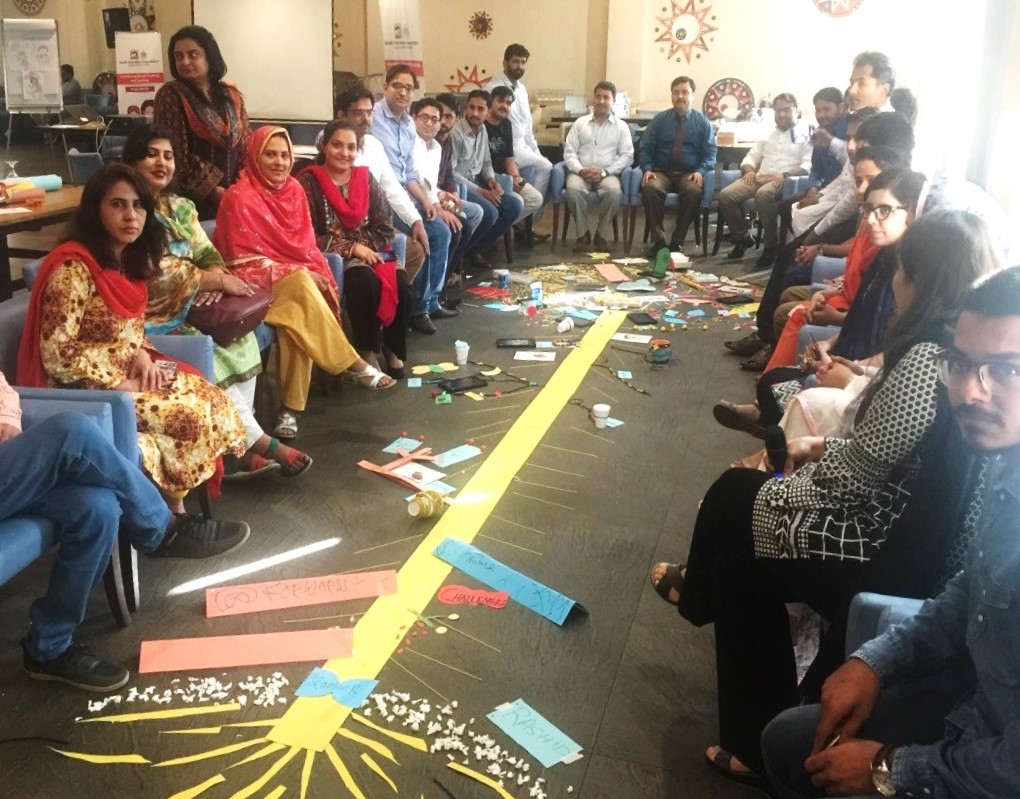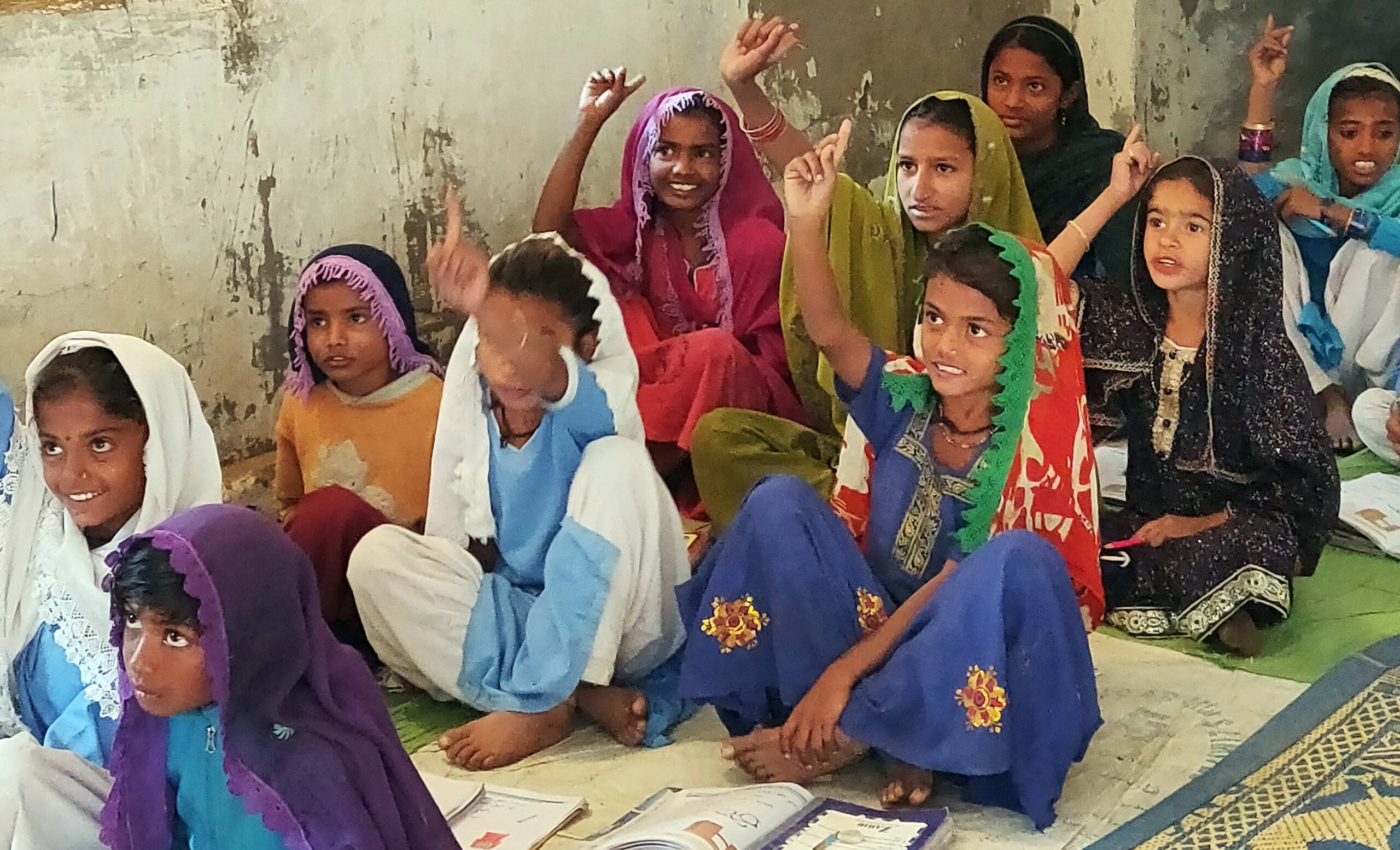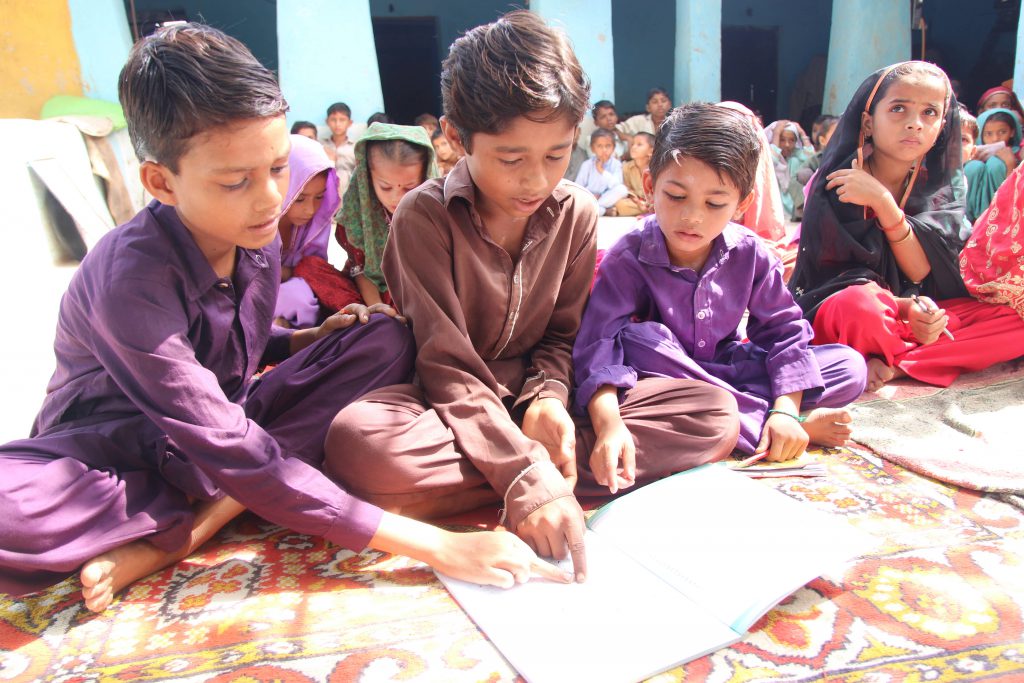Making Learning Fun
At SABAQ, we are all about trying to make learning fun for everyone.
For a lot of people, that means that our content teaches kids in a manner that hooks them onto learning. On the flip side, though, making learning fun applies not just to kids, but also the people who teach them, i.e. the trainers and mentors.
One of our recent teacher training sessions was conducted for our SEF INSTAL(Introducing Smart Teaching And Learning) trainers a few months ago. These trainers teach students through SABAQ Tablets in SEF schools.
The 3-day training session encouraged blending various approaches to teaching to make students more productive. The teachers ended up having a lot of fun! They learned about teaching through play, difference between structured and non-structured play, several teaching methods, and the optimal way to use the wealth of resources in SABAQ Tabs.
Our Academic Lead, Hina Amjad, believed focusing on one subject a day would work the best. So, day one focused on English, day two on maths and day three was all about science.
The training sessions collectively involved trainers in activities they could then replicate with their own students.
“I feel that today’s session has changed my understanding of good teaching resources. I realized that numerous household things (and the things that are around us) can be used as teaching resources and it does not have to be a card sheet/paper to be an effective resource.”
– Zia Noor, Trainer
The 3-Day Training
On the first day, trainers participated in discussions about the benefits of storytelling as a teaching strategy and how to manage tech-blended classrooms.
The second day then shifted the focus to structured and non-structured play. Structured play generally sets a goal that students can reach by applying logic and non-structured play focuses more on creativity and imagination. Trainers learned new approaches and had a ton of fun doing it! They created mandalas and mock lessons with the help of ordinary household items such as pasta, shoelaces and Popsicle sticks. They even solved Sudoku puzzles, to see how interesting games can teach kids math concepts in an engaging manner.
“The differentiation between free and structured play was demonstrated beautifully by the trainer and it made me realized that play time can be a very powerful tool to improve the learning outcome.”
– Ghulam Mudasir, Trainer
On the last day, trainers learned about teaching science lessons through interactive games such as bridge-building. Ms. Amjad then continued with a discussion of why certain structures were stronger than others. The trainers also worked on an “imagination tree” to mark their progress and journey in SEF INSTAL project.
“I like the idea of creating different learning corners to facilitate different learning styles within a classroom, this can help to create a more inclusive atmosphere in the class that would in turn create opportunities for all learners to participate and thrive.”
– Benazir Qureshi, Trainer
The Takeaway
Every day ended with Ms. Amjad providing the participants with detailed feedback about their mock lessons. The participants learned new ways to share feedback and were excited to try them out. All in all, it was a very successful session and the trainers left more than satisfied!
It’s important for children to look forward to learning, but even more so for teachers to look forward to teaching them. This was a learning opportunity to show that it doesn’t take a lot to capture and hold students’ attentions. With their wild imaginations, it’s very easy for kids to picture food as the universe, and water as time.
The only thing left to do is provide them with the opportunity to let their minds expand.



